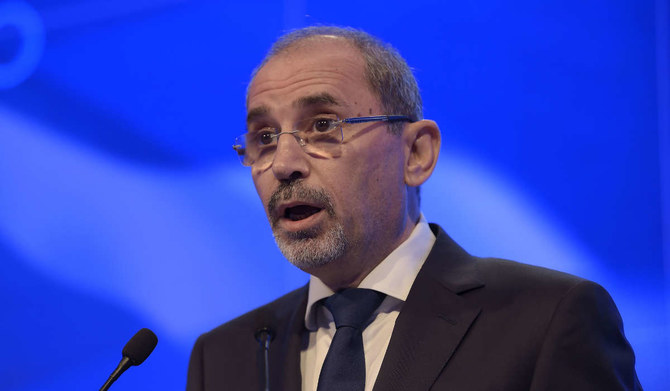
In Israel there is always an election on the horizon, and for the past two years that horizon has always been a matter of months away. This makes a mockery of any governance, let alone good governance.
The Knesset passed a bill last week to dissolve itself for a record fourth time in less than two years. After two elections that failed to yield a government, a third one in March produced a coalition that no one expected either to function or to last. This is mainly because the government has from the outset been no more than a vehicle for Prime Minister Benjamin Netanyahu in his “no prisoners taken” war against the due process of his corruption trial that began this year and will reach its evidentiary phase in January.
The next election’s clock was ticking from the first minute the government was formed with a life expectancy not beyond November 2021, when Netanyahu was supposed to hand over the prime minister’s job to the leader of Likud’s main coalition partner, Benny Gantz of Blue and White. Gantz was probably the only one who believed his new partner, who has a record of violating agreements and undermining rivals and partners alike, would honor the deal. The main question was about the best timing for either party to face the electorate again. Some see Blue and White’s support for the dissolution of the Knesset, the first stage of legislation for a fresh election, as a tactical move; a warning to Likud, and especially the prime minister, that unless he stops his manipulations and deceptions he will lose his majority and the government will fall. Others see it as a declaration of the termination of this unfortunate partnership.
Politicians can rely on either opinion polls or their gut instincts when it comes to elections, and few can sense the mood on the street or sway it better than Netanyahu. Hence, he doesn’t want an election before the late spring of 2021. For him, going to the polls before the coronavirus vaccine is rolled out and the outbreak under control is too risky. With the number of cases on the rise and a third lockdown expected, an election early next year is not something Likud would welcome. Moreover, figures published last week show that 2020 has been the worst year for poverty in Israel, with the number of those living below the poverty line leaping from about a fifth of all households to nearly a third since the outbreak of the pandemic — not a good record to defend at the ballot box.
For Netanyahu, going to the polls before the coronavirus vaccine is rolled out and the outbreak under control is too risky.
Yossi Mekelberg
However, the challenges faced by the parties that comprise this disjointed coalition vary. Blue and White accepts that without joining forces with other groups it will end up, in Israeli terms, as a small-to-medium party with about 10 seats and much reduced influence. The two ultra-Orthodox parties have a well defined base that grants them the same level of representation in the Knesset in every election. The other members of the coalition, including the historic Labour party, are, like Blue and White, expected to pay electorally for their opportunism in joining Netanyahu, despite promising not to share a government with a defendant in a corruption trial, and are expected to disappear altogether from the political landscape.
Meanwhile it was Likud MK and Netanyahu’s main rival in the party, Gideon Sa’ar, who threw a spanner in the works and in Netanyahu’s plans to cling to power by announcing his departure from the party and his plan to establish a rival one. Opinion polls suggest he might become the kingmaker by holding the balance of power, or under certain conditions even become the next prime minister. Sa’ar is younger, with right-wing, hawkish, secular views, and most importantly appears to have no skeletons in his cupboard, unlike those that have dogged the current prime minister.
Time will tell whether the new party, with the somewhat pretentious name of New Hope, is going to take off beyond the early excitement of its formation in a time of great despair. Nevertheless, early indications show that Sa’ar’s initial gambit has split the Right vote even further, resulting in the prospect of no party commanding more than a fifth of the seats in the next Knesset, making it almost impossible to form a functioning government.
Over the next weeks and probably months until the date of the next election becomes clear, we can expect, in the tragic tradition of Israeli politics, that new alignments will be formed and candidates will shift from one to the other, for ideological reasons certainly, but mainly out of the sheer desire for a life in frontline politics. Three elections in two years (and now a fourth) demonstrate the high price of chronic political instability, especially when the country is facing the worst health crisis in its history, with horrendous economic and social consequences. The leadership, and I use this term loosely, are constantly at each other’s throats and living from one election to the next, not to mention a prime minister whose mind is on staying out of jail rather than running the country.
The voters will decide whether they want to continue with this damaging anomaly. However, the early signs are that the formation of new political factions and alignments is reviving the “Anyone but Netanyahu” camp, which may become a unifying election war cry.
Yossi Mekelberg is professor of international relations at Regent’s University London, where he is head of the International Relations and Social Sciences Program. He is also an associate fellow of the MENA Program at Chatham House. He is a regular contributor to the international written and electronic media. Twitter: @YMekelberg
Disclaimer: Views expressed by writers in this section are their own and do not necessarily reflect Arab News" point-of-view












